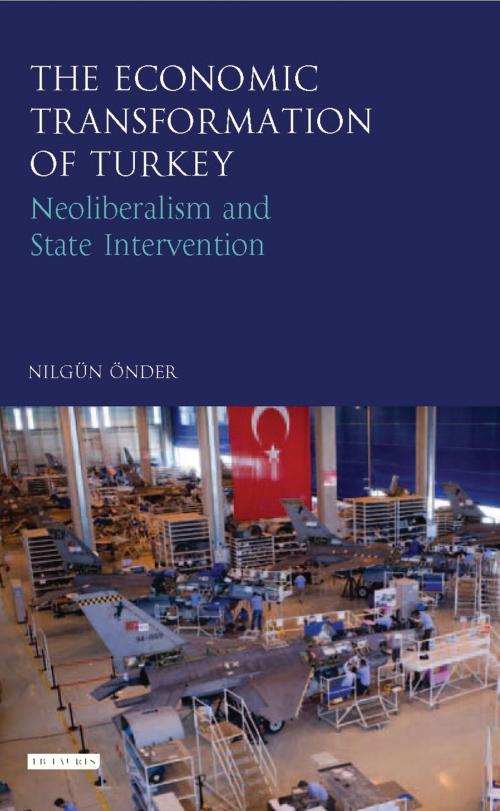The Economic Transformation of Turkey
Neoliberalism and State Intervention
Nonfiction, Social & Cultural Studies, Social Science, Business & Finance, History| Author: | Nilgün Önder | ISBN: | 9780857739476 |
| Publisher: | Bloomsbury Publishing | Publication: | October 27, 2016 |
| Imprint: | I.B. Tauris | Language: | English |
| Author: | Nilgün Önder |
| ISBN: | 9780857739476 |
| Publisher: | Bloomsbury Publishing |
| Publication: | October 27, 2016 |
| Imprint: | I.B. Tauris |
| Language: | English |
The coup d'état which took place in Turkey on 12 September 1980 was the third in the history of the Republic, and ushered in a three-year period of military rule. Nilgün Önder investigates the economic transformation of Turkey after this coup, examining both the policies enacted under the military regime and those during the subsequent period of civilian government. Önder argues the key aspect of economic policy was that of neoliberal restructuring, and integral to this was the exclusion of organised labour from the political process. In doing so, she highlights the irony of the era: that at an official level, there was an emphasis upon neoliberal economic values, such as limited state involvement. And yet at the same time, policies were enacted which were aimed at a more interventionist position when it came to industrial relations. It was through new legislation and bureaucratisation of the industrial relations system that the state transformed the Turkish economy, attempting to open it up to foreign investment and trade: in effect creating the foundations of Turkey's current economic success.
The Economic Transformation of Turkey examines the relations between state and labour during this period by concentrating on the form of state and political regime. As a result, Onder highlights the continuation of neoliberal restructuring and the accompanying anti-labour policy in Turkey throughout the 1980s and 1990s, despite the transition to democratic rule. Shaped by the theory that the form of rule and the actions of organized interests in a particular society are conditioned by the constraints of the world political-economic order, this book explores the networks of interactions between global capital and international institutions, on the one hand, and the state and domestic social forces in Turkey on the other
The coup d'état which took place in Turkey on 12 September 1980 was the third in the history of the Republic, and ushered in a three-year period of military rule. Nilgün Önder investigates the economic transformation of Turkey after this coup, examining both the policies enacted under the military regime and those during the subsequent period of civilian government. Önder argues the key aspect of economic policy was that of neoliberal restructuring, and integral to this was the exclusion of organised labour from the political process. In doing so, she highlights the irony of the era: that at an official level, there was an emphasis upon neoliberal economic values, such as limited state involvement. And yet at the same time, policies were enacted which were aimed at a more interventionist position when it came to industrial relations. It was through new legislation and bureaucratisation of the industrial relations system that the state transformed the Turkish economy, attempting to open it up to foreign investment and trade: in effect creating the foundations of Turkey's current economic success.
The Economic Transformation of Turkey examines the relations between state and labour during this period by concentrating on the form of state and political regime. As a result, Onder highlights the continuation of neoliberal restructuring and the accompanying anti-labour policy in Turkey throughout the 1980s and 1990s, despite the transition to democratic rule. Shaped by the theory that the form of rule and the actions of organized interests in a particular society are conditioned by the constraints of the world political-economic order, this book explores the networks of interactions between global capital and international institutions, on the one hand, and the state and domestic social forces in Turkey on the other















